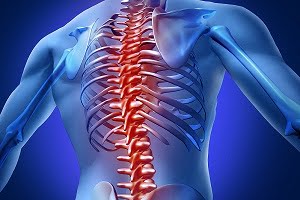How to Prevent Osteoporosis?
- Updated on: Jul 12, 2024
- 3 min Read
By
- Published on Oct 3, 2019


Osteoporosis Prevention
The height and the strength of the skeleton are determined by the genes of an individual. Lifestyle factors are the culprits that make the bone fragile and weak. And prevention of osteoporosis includes some positive changes to the lifestyle.
The prevention measures of osteoporosis include the following:
Regular exercise
Exercise is essential for every individual whether a teenager or an adult. Regular exercise helps build strong bones and slow down the process of bone loss. Exercise benefits in many ways no matter when it is started. But it is always good to start the exercise in young age and continue it throughout the life.
Some of the benefits of regular exercise are:
- Reduce the rate of bone loss
- Conserves bone tissue, lowering the risk of fractures
- Reduce the risk of falling
- Makes the bones more flexible
Types of exercises for osteoporosis patients
There are three types of exercise which are recommended for patients with osteoporosis for improving bone density and preventing osteoporosis:
- Weight-bearing exercise
- Resistance exercise
- Aerobic exercise
Healthy eating
Eating a healthy and balanced diet is recommended for everyone whether or not affected by osteoporosis. Healthy eating leads to a healthy body and a healthy mind. It also helps prevent most of the serious health conditions like coronary heart disease, diabetes, etc.
Most of the fruits and vegetables contain a number of bone-friendly nutrients. They include calcium, magnesium, potassium, vitamin K, vitamin C, and protein. Including these fruits and vegetables in diet help strengthen the bones.
Calcium intake
Calcium helps in building and maintaining strong bones. Approximately 99 percent of body’s calcium is found in bones. Calcium combines with other minerals and forms a hard crystal that gives bones the structure and strength.
An adult need 700mg of calcium in a day. Intake of calcium-rich foods in the diet helps prevent the disease.
What are calcium rich foods?
Calcium-rich foods include:
- Leafy and green vegetables like broccoli, mustard cabbage, cucumber, celery and chickpeas
- Dried fruit like almonds, figs and apricots
- Soy-based products like tofu
- Dairy products such as milk, cheese and yogurt
- Breakfast cereals
- Calcium supplements (if enough calcium is not obtained from food)
Vitamin D intake
Vitamin D is also important for healthy bones and teeth because it helps the body to absorb calcium.
Benefits of Vitamin D
Vitamin D also helps in:
- Maintenance of the skeleton
- Regulating level of calcium in the blood
How much vitamin D should an adult consume?
An adult should consume 10 micrograms (mcg) of vitamin D in a day.
What are the sources of vitamin D?
Vitamin D sources are:
- Oily fish – such as salmon
- Red meat
- Liver
- Egg yolks
- Mushrooms
- Fortified foods such as most fat spreads
- Cereals like oatmeal
However, food alone cannot provide an adequate amount of vitamin D. Hence people rely on two things for adequate amount of vitamin D:
Sun
The main source of vitamin D is sunlight. Human skin can make a large amount of vitamin D when the skin is exposed to the light from the sun. Ultraviolet B (UVB) rays are most important for the production of vitamin D.
Sun exposure time may be different for different seasons, skin color, skin type and the amount of skin exposed. From late March to the end of September, sunlight triggers the production of vitamin D. It is the best time to get exposed to sun and increase the Vitamin D percentage in the body.
Vitamin D supplements
For people with low vitamin D levels (mild to moderate), a supplement is essentially required. An adult should take a daily supplement containing 10mcg of vitamin D.
Lifestyle changes
Some lifestyle factors that can help prevent osteoporosis include:
Quitting smoking
Smoking is identified as a risk factor for osteoporosis and bone fracture. Continuous smoking reduces the bone density. Smoking has a negative impact on bone healing also after a fracture. Quitting smoking is the best gift a person can give to his body.
Limiting alcohol intake
Drinking too much alcohol can disturb the balance of calcium in the body and leads to falls and fractures. It also affects the production of hormones (responsible for a protective effect on the bone) and of vitamins (needed to absorb calcium).
More than 14 units of alcohol in a week are harmful to every person. Binge drinking should be avoided.
Preventing falls
One should be careful enough to prevent any fall that could lead to a bone fracture. Falls can be prevented in two ways:
Preventing indoor falls
- wearing shoes with non-slip soles
- keeping electrical cords away from the usual path like against the edges of the walls
- keeping an adequate amount of light in the room
- carpets are well tacked to the floor
- keeping a source of light next to the bed
- putting grab bars in the bathroom
- keeping bathroom dry
Preventing outdoor falls
- using support like a walker
- rubber-soled shoes
- avoiding sidewalk when it is wet
- wearing the right glasses as prescribed by the doctor to prevent falls due to poor vision











